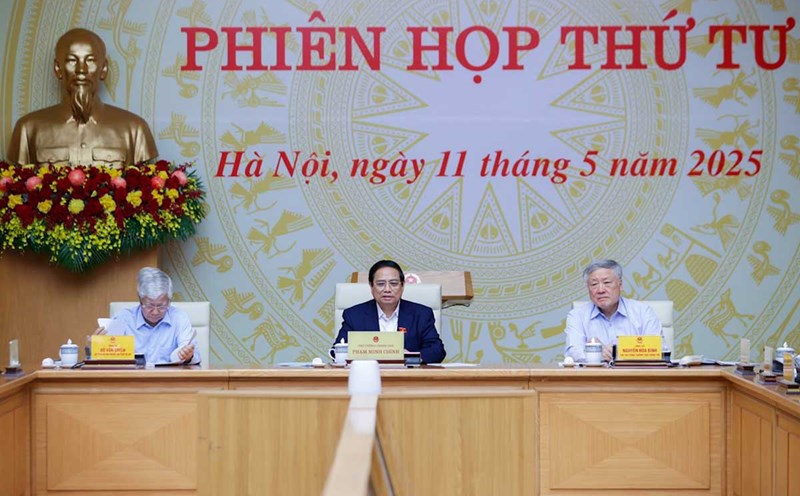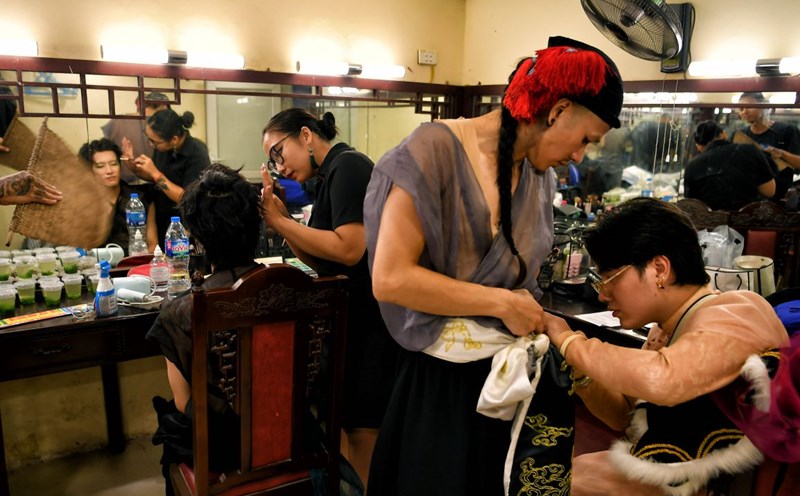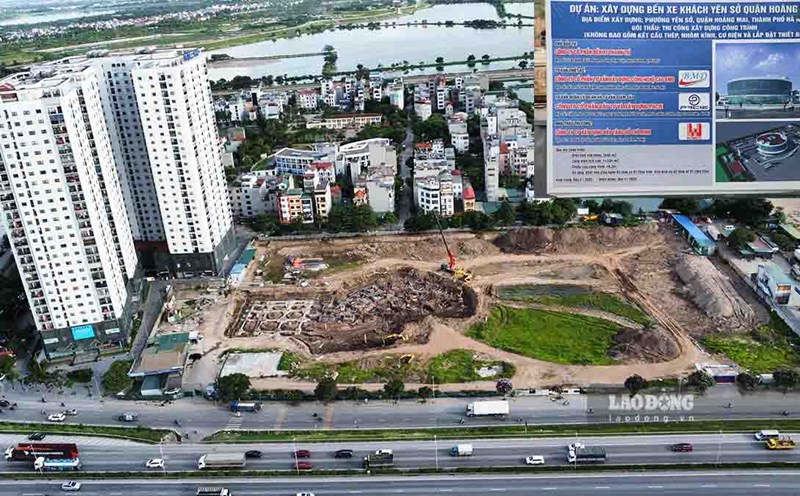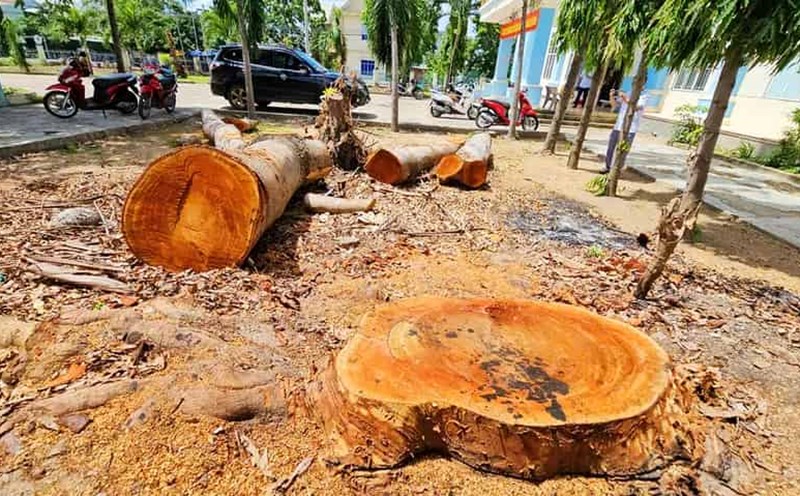Soc Trang is one of the localities that completed the Program to eliminate temporary and dilapidated houses ahead of schedule, with more than 8,900 houses built and repaired in less than 6 months.
On this occasion, Lao Dong Newspaper had an interview with Ms. Tu To Quyen - Vice Chairman of the Vietnam Fatherland Front Committee (VFF) of Soc Trang province - to clarify further good practices, effective models and future orientations to continue caring for vulnerable groups in the area.
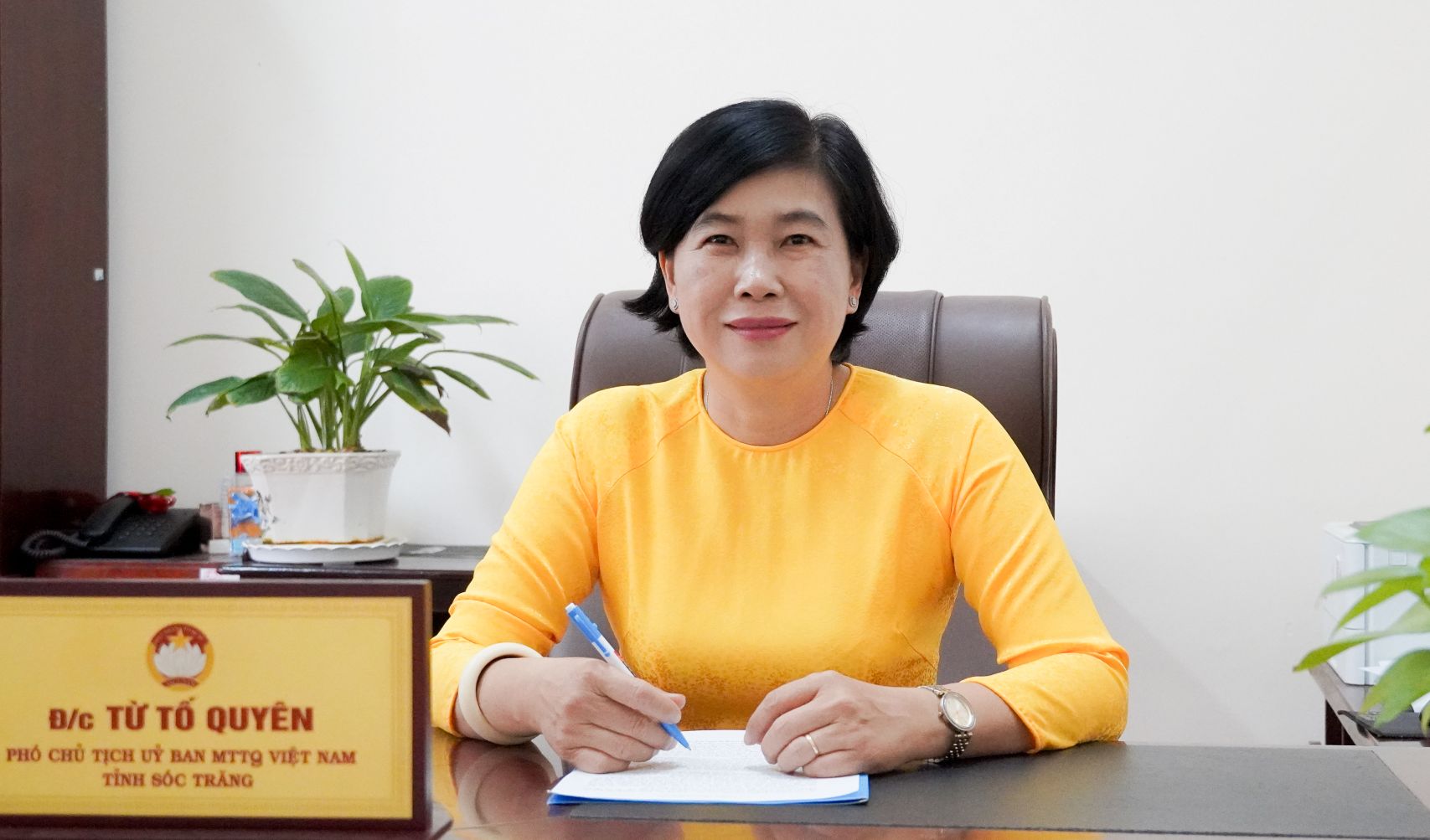
Sir, what are the outstanding results of Soc Trang province in the process of implementing the program to eliminate temporary and dilapidated houses in recent times?
- Ms. Tu To Quyen: In recent times, Soc Trang province has focused on implementing the Housing Support Program for disadvantaged groups such as poor households, near-poor households, people with revolutionary contributions, and relatives of martyrs. Through the review, the whole province needs to support 8,917 houses, of which 6,549 were newly built and 2,368 were repaired. The total implementation cost is about 460 billion VND.
The Steering Committee from the province to the grassroots has been very active, developing working regulations and clearly assigning tasks to each unit. Thanks to that, the whole province completed 100% of the target in less than 6 months, reaching the finish line 3 months ahead of schedule. This is a result that demonstrates a sense of responsibility and practical concern for people's lives.
How has the Vietnam Fatherland Front Committee of Soc Trang province coordinated to ensure the progress and quality of housing projects?
- Ms. Tu To Quyen: From the beginning, the Vietnam Fatherland Front at all levels has closely coordinated with local authorities and mass organizations to widely disseminate the purpose and significance of the Program. At the same time, we mobilize the contributions of businesses and individuals to increase resources.
The Provincial Fatherland Front alone has received and allocated over VND299 billion for the program, the rest is taken from the central, provincial and district budgets. We have established 2 inspection and supervision teams for the implementation process, especially the stages of receiving, using funds and finalizing documents. Thanks to star supervision, localities have implemented regulations, targeted target groups, ensuring transparency and efficiency.
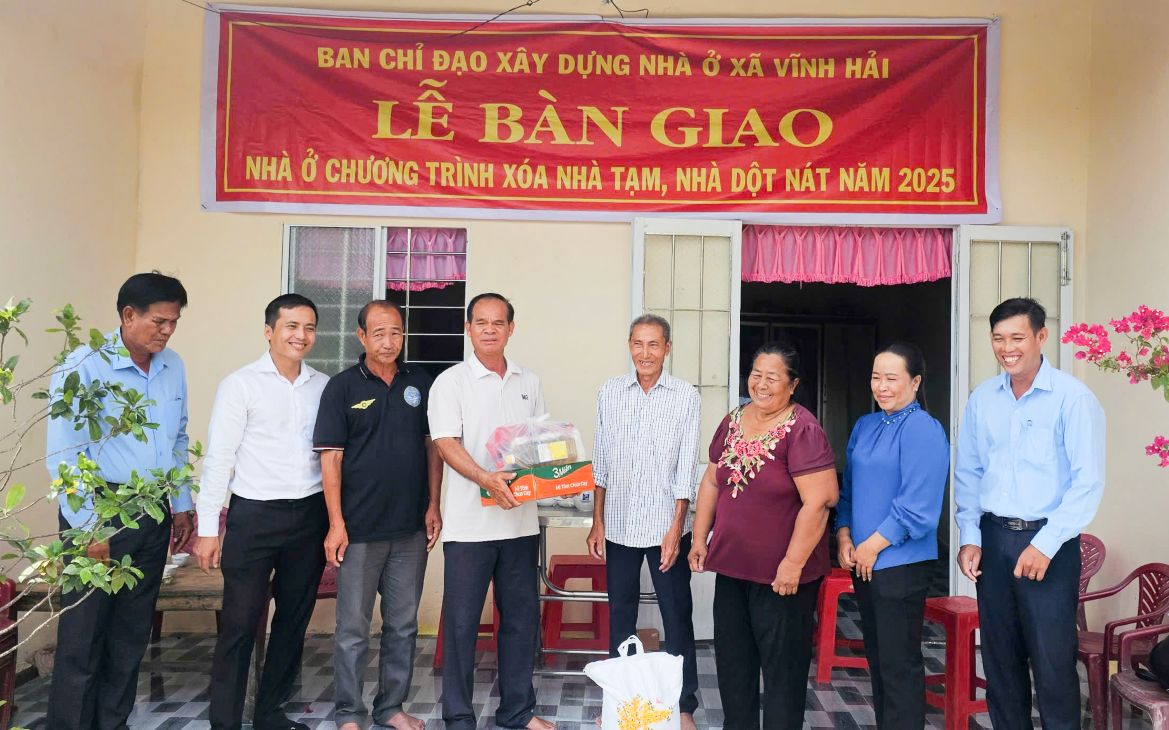
Through practical implementation, how do you evaluate the good models and creative approaches of localities in the work of eliminating temporary and dilapidated houses?
- Ms. Tu To Quyen: Despite the short time, many localities have had very effective initiatives. Party committees, authorities, and organizations have mobilized all their efforts and assigned forces to directly support people in building houses. In total, more than 42,600 working days were contributed.
For example, the Provincial Military Command mobilized 150 cadres, over 1,000 militia and youth union members to help build 95 houses in Vinh Chau and Thanh Tri. The Military Commands of districts, towns and cities also contributed more than 12,000 working days to build and repair more than 2,000 houses.
The Provincial Veterans Association participated in nearly 1,600 working days; The Youth Union established more than 100 volunteer teams, attracted 1,210 union members to participate, contributed 1.2 billion VND and built houses during the Youth Month.
Many businesses and benefactors have donated materials such as cement, steel, bricks, etc. with a total value of more than 8 billion VND. Thanks to that synchronous participation, the program has spread widely, becoming a social movement rich in humanity, carrying the spirit of "whoever has something to contribute".
After completing the goal of eliminating temporary houses, how will the role of the Vietnam Fatherland Front continue to be promoted in social security work, sir?
- Ms. Tu To Quyen: The Vietnam Fatherland Front at all levels identifies the work of mobilizing resources for the poor as a regular task. In the coming time, we will continue to coordinate with sectors, member organizations, and businesses to mobilize resources through the "For the Poor" Fund, especially during the Peak Month from October 18 to November 18 every year.
In addition to housing support, the Front will focus on sustainable livelihood solutions such as: supporting plant and animal varieties, livestock, vocational training, medical examination and treatment, granting scholarships, giving Tet gifts... to help the poor and disadvantaged have the conditions to rise up and escape poverty sustainably.
Thank you.



